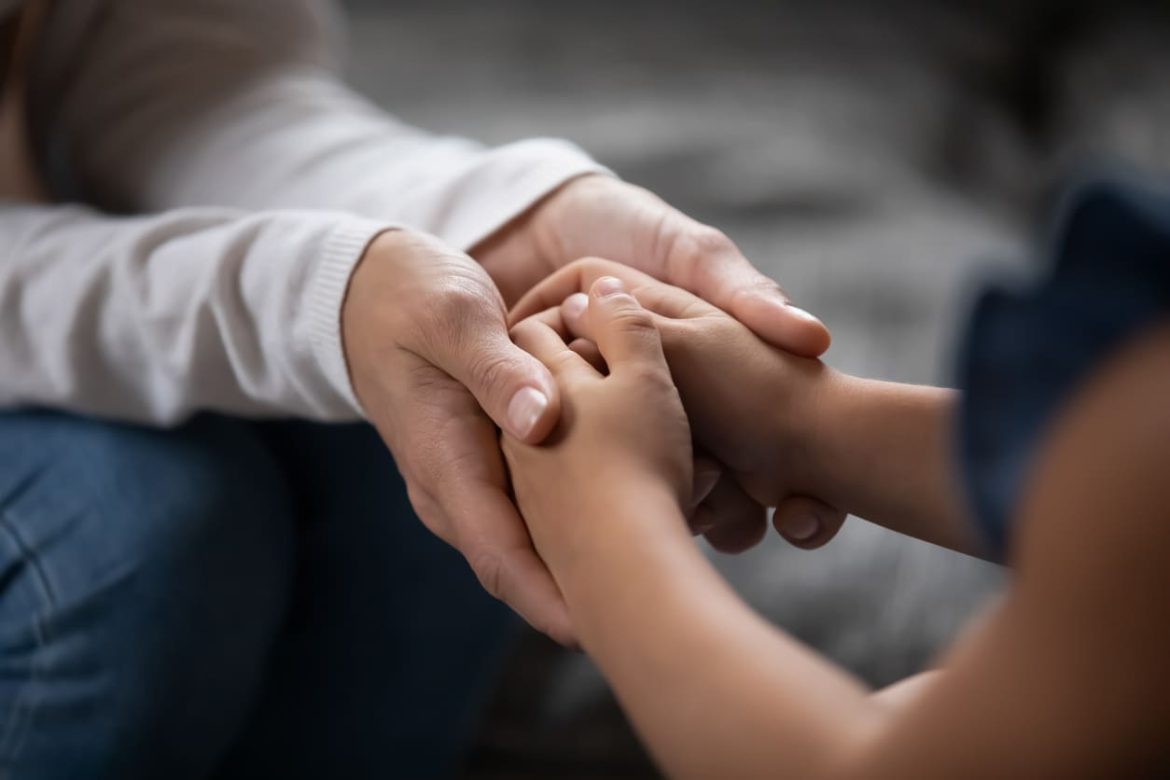Every now and then in the life of a little person there are disappointments. A fall hurts, a toy is taken away, a child is called names at school... A child turns to the closest people - his parents - for comfort. The following is a little about what can be valuable for a person when he/she is upset.
To support is to pay attention. "I can see that something important has happened to you."
Anyone wants to be taken seriously about what they are going through. Looked carefully at the bruised area. Listen to the story of the argument. And not to be brushed off with, "It's no big deal!", "You're always like this!", "Don't get upset!"
To support is to embrace.
The touch of a loved one releases the hormone oxytocin, which makes us feel warm and tender. And the amount of the stress hormone cortisol decreases dramatically. That is to say, hugging and touching loved ones naturally calms us down.
If your baby is crying desperately and can't hear you at all, hugging and stroking may be the only way to comfort them.
You can make up your own signs of support without words. Encode the words "I love you" into a touch (maybe a simple hand squeeze).
To support means to listen. And to let you know that you are heard.
A serious conversation always takes place face to face and at the same eye level.
We can directly repeat, in an affirmative tone, what we understood from the story.
Child: - I won't play with Vanya anymore!
Parent: -You don't want to be friends with him anymore.
The baby will nod his head, or correct us, complete the story. He will sense that you are ready to listen.

To support means to sympathize, to share your feelings.
When we sympathize, we stand in the other person's shoes, we understand and share their feelings, and we express our participation.
It is not always easy for a child to navigate his feelings. Something has happened, he has many emotions, but it is difficult to express them in words. We can name the emotions that we think the child is experiencing and thus join him or her in expressing our sympathy.
Child: - I won't play with Vanya anymore!
Parent: - You don't want to be friends with him anymore.
Child: Yes! He broke my game!
Parent: - You were very hurt.
When you name your child's feelings, the intensity of your emotions is reduced. The child feels your involvement; it feels that you understand and share its feelings. And the grief you share is halved.
The affirmative form is better than the question form because: "What happened?", "Are you upset?" is more of a fact-finding exercise. An affirmation is a better expression of sympathy.
It's okay if you make a mistake in assuming this or that feeling, the child will correct you.
You can also express your feelings about what happened in this way: "I really understand you," "I'm sorry that this happened," "It really hurts.
To sustain means to remain stable.
Of course, there can be a lot of strong feelings when you hear that a child has been hurt or failed. But if you wallow in your feelings by crying bitterly or getting angry and pounding your fist on the table, your child will not feel supported. Rather, it will be clear that you need comforting now, too.
If your emotions are too strong, try to hold back when talking to your child and then call your friend or the helpline for support.
To support is to refuse to blame the child himself.
"I told you so," "It's your own fault," "So you're wrong about something too," "Look at yourself" - none of this works for support, but rather makes it hurt more.
Later you can work out together what started it all, and whose responsibility it is, but in the first minute the child needs sympathy, and not a discussion of who is right and who is wrong.
Supporting means looking for a solution together, not giving advice.
We can talk with the child about the actions he or she could take, but after emotional support.
"Let's think together about what we can do. What ideas do you have?"
But it's sympathy that matters to the child first, not our plan for dealing with the situation.
"You had to," "Just do it" is not supportive. After the child has shared his or her ideas, you can talk about your experience. What has ever helped you? Or what would you have done in his place? From there, it's up to him to decide how to handle all these ideas.
By and large, supporting a child is not much different from supporting an adult. When we pay attention, listen, share feelings, remain stable, embrace our loved one, refrain from accusations and ready-made solutions we definitely make the pain quieter and our relationship warmer.
